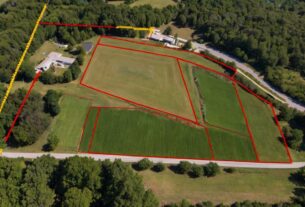Understanding Lalpurja: The Property Ownership Certificate in Nepal
In Nepal, Lalpurja is the term used for the property ownership certificate. It is an official legal document issued by the Land Revenue Office (Malpot Karyalaya) and is critical for establishing ownership of a piece of land or property. Here’s an overview of what Lalpurja entails, its importance, and the process involved in obtaining or transferring it.
What is Lalpurja?
The Lalpurja serves as:
- Proof of Ownership: It certifies that the person named in the document is the rightful owner of the land or property.
- Legal Evidence: It is used during property transactions, disputes, or for obtaining loans.
- Details of the Land: It includes critical information such as the size, location, and boundaries of the property.
The term “Lalpurja” translates to “Red Paper” due to its traditional red-colored cover.
Importance of Lalpurja
- Ownership Rights: Establishes clear legal ownership.
- Property Transactions: Required when buying, selling, or leasing land.
- Loan Security: Essential for using the property as collateral for a loan.
- Avoiding Disputes: Helps resolve or prevent ownership disputes.
- Development Projects: Needed for obtaining government approvals for construction or other projects.
Key Details Included in Lalpurja
- Owner’s name and citizenship number
- Land parcel identification number
- Location and boundaries of the land
- Area of the property (measured in Ropani, Aana, Paisa, or Daam)
- Land use category (residential, agricultural, commercial, etc.)
- Tax payment record
Process to Obtain or Transfer Lalpurja
- Property Registration:
- When buying property, the buyer must register it at the local Land Revenue Office (Malpot Office).
- Submit documents like the seller’s Lalpurja, citizenship certificates, and the sale agreement.
- Pay the applicable registration fees and taxes (usually around 4-5% of the property value for registration and additional capital gains tax for the seller).
- Transfer of Ownership:
- If a property is gifted or inherited, the transfer must be recorded at the Land Revenue Office.
- Documents like a Bakashpatra (deed of transfer) or inheritance proof are required.
- Correction or Replacement:
- In cases of errors or lost Lalpurja, the owner must apply for a corrected or duplicate certificate at the same office, with supporting documents and a nominal fee.
Challenges Related to Lalpurja
- Disputed Ownership: Overlapping claims or unclear boundaries can lead to legal issues.
- Unregistered Property: Some land may lack proper documentation, making it harder to sell or use legally.
- Forgery and Fraud: Fake Lalpurjas are sometimes created, necessitating vigilance during transactions.
Digital Transformation and Lalpurja
Nepal is moving towards digitizing its land records, which will:
- Reduce manual errors and fraud.
- Improve transparency in property transactions.
- Make it easier to access Lalpurja information online.
Tips for Property Buyers
- Always verify the Lalpurja’s authenticity by checking with the Land Revenue Office.
- Ensure there are no legal disputes or encumbrances on the property.
- Work with a lawyer or a trusted real estate agency like 4Killa Real Estate to handle transactions smoothly.



